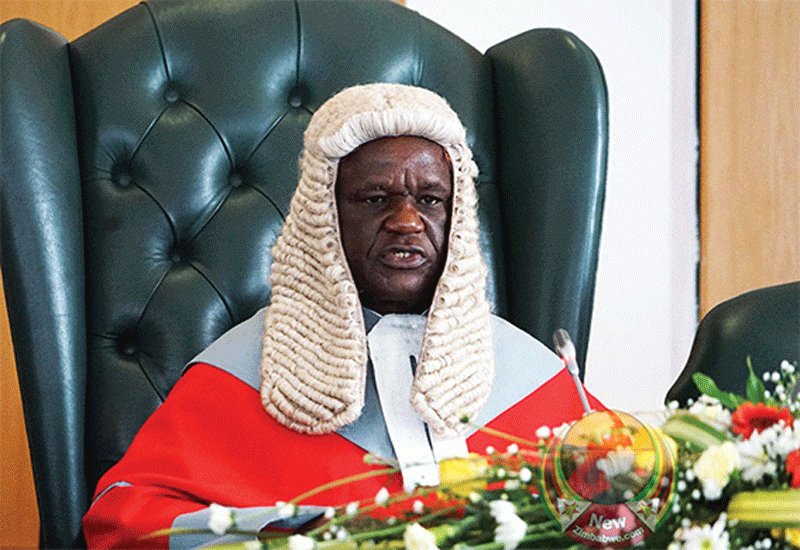
ZIMBABWE last week found itself in the global spotlight, albeit for the wrong reasons, after it was forced to cancel a workshop for judges that had been called for by the Executive.
The two-day workshop was expected to be addressed by Zanu PF’s Chitepo School of Ideology principal, Ishmael Mada, CIO director-general, Fulton Mangwanya and Finance, Economic Development and Investment Promotion permanent secretary George Guvamatanga.
In a memo cancelling the workshop on Integrated Results-Based Management (IRBM) following an outcry, Chief Justice Luke Malaba said the Judiciary "has been actively engaging with the Office of the President and Cabinet (OPC) regarding the most appropriate programme, training material and resource persons for this performance management training initiative, consistent with the constitutional requirement of the guarantee of judicial independence”.
“Following the initial consultations and continued discussions with OPC on the implementation framework, I wish to inform you that a decision has been taken to cancel the IRBM training, with the view of coming up with a programme content administered by the Judiciary and suitable to the requirement for judicial independence,” Malaba said.
The bone of contention among neutrals was how a director of the Chitepo School of Ideology, a Zanu PF outfit, could address the judges. There were also fears that an address by the CIO director-general would not have been ideal, as this would compromise the independence of the Judiciary.
There is no doubt that the Executive wanted to “control” the Judiciary under the guise of the workshop.
The Judiciary is one of three arms of the State alongside the Executive and the Legislature. The three arms of the State are not subordinate to one another. Rather, they are there for checks and balances.
The executive executes the business of the government. The Legislature takes care of the lawmaking business, while the Judiciary interprets the law.
- ‘Killer’ soldier granted bail
- Letter from America: The death of the Zimbabwe dollar shows the King has no clothes
- Uproar as top civil servants are sent to Zanu PF lessons
- Letter from America: The death of the Zimbabwe dollar shows the King has no clothes
Keep Reading
As such, the doctrine of the separation of powers mandates each arm to stay in its lane.
This is why there was an outcry when the Executive appeared to have imposed itself on the Judiciary.
The independence of the Judiciary is enshrined in the Constitution.
Section 164(1) states that the courts are independent and are subject only to this Constitution and the law, which they must apply impartially, expeditiously and without fear, favour or prejudice. The Constitution also states that the independence, impartiality and effectiveness of the courts are central to the rule of law and democratic governance. It forbids neither the State nor any institution or agency of government at any level from interfering with the functioning of the courts. It mandates the State, through legislative and other measures, to assist and protect the courts to ensure their independence, impartiality, dignity, accessibility and effectiveness and to ensure they comply with the principles set out in section 165.
We urge the Executive to resist the seduction of power and stay in its lane.
The independence of the Judiciary must not be compromised. One must approach the courts confident that the Judiciary will interpret the law in its capacity as the last guarantor of the rule of law.






